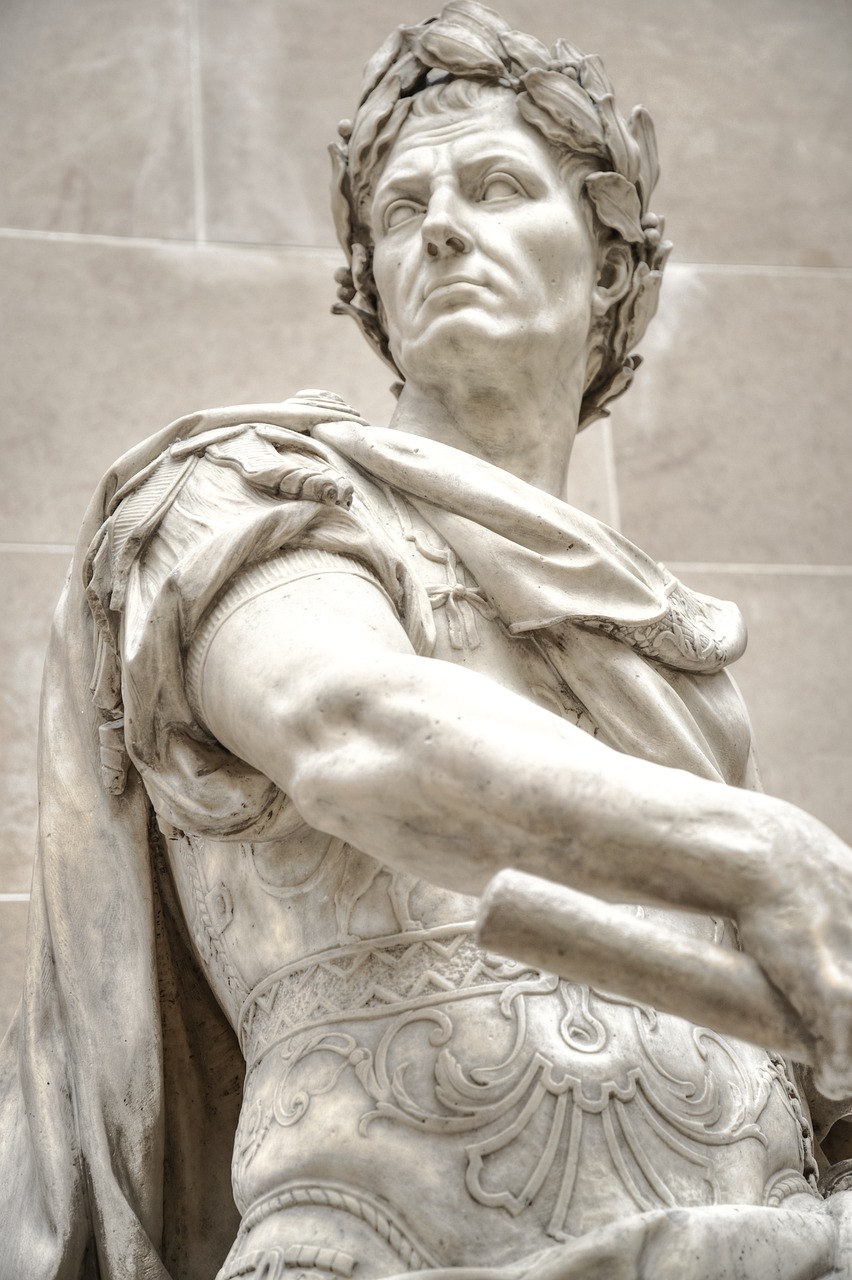Who was Julius Caesar?
Julius Caesar was a general and a politician who named himself dictator of the Roman Empire for less than year, when he was assassinated by a group of conspirators.
Caesar’s Rise to Power and Crossing the Rubicon:
Caesar was born on July 13, 100 B.C.E. to a noble family in the Roman Republic. During his youth, the Roman Republic was in a state of chaos and disorder. Caesar seized this opportunity to move up the ranks and briefly became the governor of Spain, a Roman province. Afterwards, Caesar returned to Rome and became the governor of Gaul, which is present day France and Belgium. His Roman troops conquered Gaul by taking advantage of existing tribal rivalries in the region. In addition to conquering the Gallic tribes, Caesar also plundered the region, and richened his troops with his newly gathered wealth. This came to his advantage when his rivals in Rome demanded his return as a private citizen. Disobeying their orders, Caesar used his newly gathered riches to strengthen his army. With his Roman troops, Caesar crossed the Rubicon River, traveling from Gaul to Italy. This was when civil war between Caesar and Pompey, his rival in Rome, divided Rome. Caesar’s superior army defeated Pompey, and he stepped in as the ruler of Rome.
Caesar’s Short-Lived Victory:
After his victory, Caesar established himself as the dictator of Rome, and brought about many changes to the Empire within his short rule of one year. Some of these changes included enlarging the Senate, opening it up to citizens of lower-classes to join. He also made several government reforms, including granting property to retiring soldiers, and redistributing the land to the poor. As well, he relieved Rome of debt. Caesar, while known for being a proud and valiant dictator, was also known for the mercy which he showed towards war captives. Instead of killing the prisoners of war, he would grant them mercy in exchange for their swearing fealty to Rome.
Ambition lead to Betrayal:
While Caesar became very popular amongst the lower class citizens of Rome, there was growing unrest amongst the people in the Senate towards Caesar. This unrest stemmed from the fact that Caesar was gaining an unprecedented amount of power. It is important to understand that at the time, the Roman Empire had moved away from a monarchy, and had established a republic. The Senators began to see Caesar as corrupt, and as a threat to democracy. In 44 B.C.E, Caesar declared himself as a dictator for life, and wished to crown himself as king of Rome. This stirred agitation amongst the Senators, who began to plan a conspiracy against Caesar. A month after Caesar’s declaration to be king, Senators Marcus Junius Brutus, who was a close friend and second choice of heir for Caesar, and Gaius Cassius assassinated Julius Caesar.

